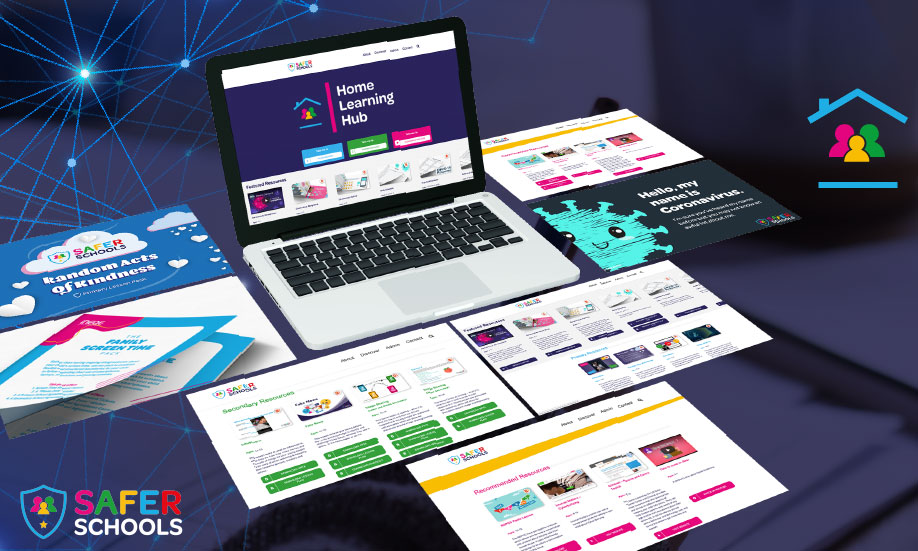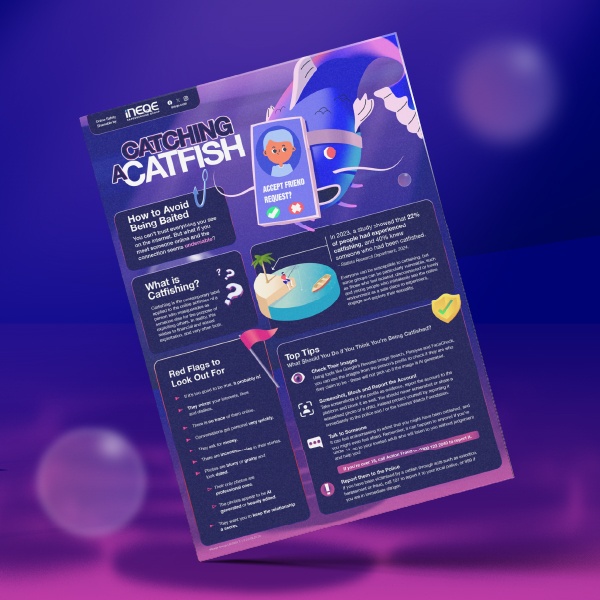Last Updated on 5th April 2024
Read the script below
Hello and welcome back to another Safeguarding Soundbites, the podcast that brings you the latest in safeguarding news and updates. This week, we’re talking about Twitter ads on toxic accounts, Omegle being taken to court, and how Google plans to tackle misinformation, plus more.
In the news, two reports released this week have highlighted how Twitter is benefiting from hateful content on the platform. The reports found that Twitter is placing adverts next to content from accounts that promote Neo-Nazis, misogynistic beliefs and Holocaust denial. Non-profit watchdog group Media Matters for America, and the Center for Countering Digital Hate both investigated how Twitter profits off advertising next to accounts that spread toxic and hateful content on the platform. The Centre for Countering Digital Hate estimated Twitter’s profits to be up to $19 million dollars a year from a selection of 10 accounts, including the founder of a popular neo-Nazi website and Andrew Tate.
With children as young as 11 quoting Andrew Tate in the classroom, it’s clear his and other voices like his are ones that don’t need any further projection – especially on platforms like Twitter which is for those aged 13 plus. In England, there’s been a rapid rise in the number of referrals to counter-terrorism programme Prevent by schools who are concerned about the influence of Andrew Tate on their pupils. Reported incidents include verbal harassment of female teachers and male pupils echoing Andrew Tate’s views.
Our Online Safety Experts reviewed the harmful views, comments, and philosophy of Andrew Tate to understand the content that children and young people are potentially being exposed to online and the harmful impact it can have. You can find that review, which includes practical advice and tips for parents, carers and safeguarding professionals, on our website at ineqe.com.
In what could be a potential landmark case, a child sexual abuse victim is taking a video chat platform to court for enabling the abuse. The now 21-year-old American was matched with the predator on Omegle who then groomed her into sending self-generated child sexual abuse images and videos. The product liability lawsuit will put the tech platform on trial, in particular for its random matching system and the lack of warnings or age verification. If the case is won, the victim will receive compensation plus Omegle will be forced to change how its platform works. Here in the U.K., Omegle would also potentially face fines under the same circumstances, if the Online Safety Bill is passed.
Google is expanding their misinformation initiative that helps make people more resilient to the effects of online misinformation. The initiative was originally launched in Eastern Europe and will now be expanded across Germany. Google will release videos on social media platforms such as TikTok and Facebook, explaining common techniques used in misleading claims. Called, ‘pre-bunking’, the aim is to teach people how to spot false claims before they encounter them. The spreading of misinformation and ‘fake news’ has become commonplace online, from Trump’s election to covid ‘conspiracies’ to outrage stories that are misogynist and transphobic.
Just as Google hopes to teach people to spot the signs of a false claim, it’s important we’re also educating children and young people about misinformation. Teach them how to check the publisher and the sources quoted and if they’re reliable or might have an agenda. Encourage them to come to you if they’re ever confused about something they read in the news online or on social media platforms, especially if it’s something that sounds scary and upsetting. And remember to always think twice about the legitimacy of things we share online so we aren’t adding to the spread of misinformation ourselves!
In an interview with Sky News, the boss of Xbox has said there’s ‘no silver bullet’ to protect women and minority groups on the internet who experience online harassment and abuse. Discussing Microsoft’s Xbox’s renewed commitment to online safety, Dave McCarthy went on to talk about how the gaming platform is using artificial intelligence (AI) to recognise abusive behaviour by sifting through billions of messages and images. He also discussed how they are using their Minecraft franchise to teach children how to protect their data and be safe online.
In Wales, the Welsh Government have announced more funding to support digital learning in education. The £8 million will go to further education in a bid to encourage further education colleges to invest in equipment and infrastructure to support digital learning.
That’s all from me for this week – join me next time when I’ll be summing up more safeguarding news and sharing the online info you need to know to help keep the children and young people in your life safer online. Remember to share this podcast with friends, family and colleagues and give us a follow on social media by searching for ‘ineqe safeguarding group’. Speak to you next time!
Join our Online Safeguarding Hub Newsletter Network
Members of our network receive weekly updates on the trends, risks and threats to children and young people online.
Pause, Think
and Plan
Guidance on how to talk to the children in your care about online risks.

Visit the Home Learning Hub!
The Home Learning Hub is our free library of resources to support parents and carers who are taking the time to help their children be safer online.













